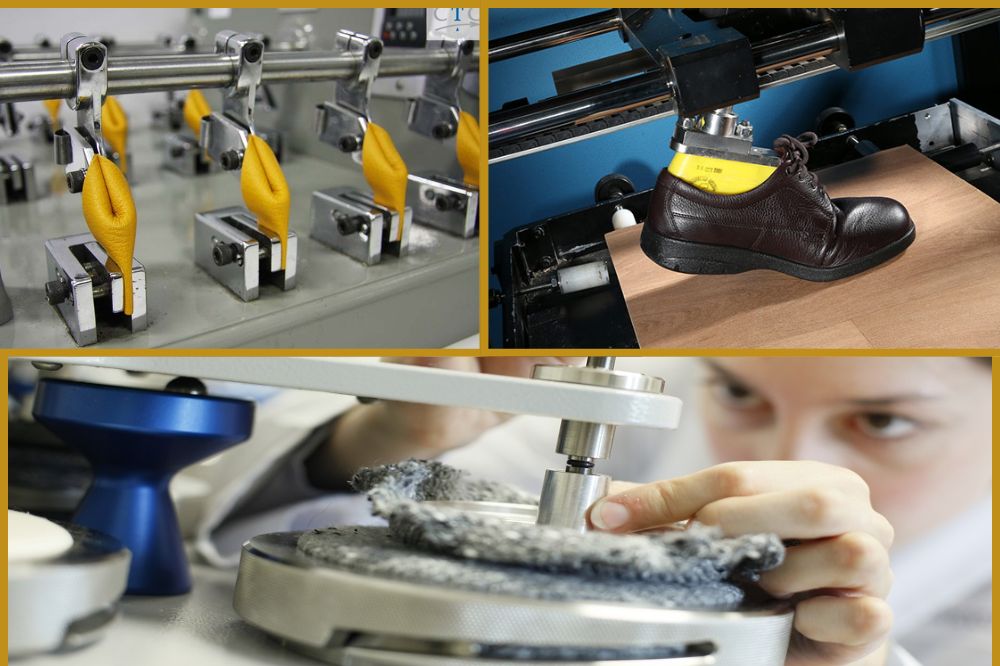The textile industry relies heavily on the quality and performance of its materials. Understanding a fabric’s behavior under stress is crucial from delicate silks to sturdy canvas. This is where the tensile tester comes in – a workhorse in textile testing labs in Delhi, India, providing vital data on a material’s strength and elasticity.
Understanding Tensile Testing
A tensile test, also known as a tensile strength test, subjects a material sample to a pulling force until it breaks. By measuring the force applied and the resulting elongation (stretch) of the sample, the tensile tester provides a wealth of information about the material’s mechanical properties. These properties include:
- Tensile Strength: The maximum stress a material can withstand before breaking. It indicates the overall strength of the fabric.
- Elongation: The amount a material stretches under tension before breaking. This is expressed as a percentage of the original length.
- Elastic Modulus: The stiffness of the material. It represents the force required to cause a specific amount of elongation.
- Yield Point: The point at which the material permanently deforms (stretches) and cannot return to its original shape.
- Tear Strength: The force required to tear a sample through a specific initiation point.
Types of Tensile Testers for Textiles
There are two main categories of tensile testers used in textiles:
- Universal Testing Machines (UTMs): These versatile machines can perform various tests beyond tensile strength, including compression, bending, and tear tests. They come in single-column and dual-column configurations, with varying load capacities depending on the intended application. UTMs are well-suited for research and development labs that require flexibility in testing different materials and properties.
- Fabric Tensile Strength Testers: These dedicated machines are specifically designed for the tensile testing of fabrics. They offer a simpler design and user interface compared to UTMs, making them ideal for routine quality control checks in production facilities.
Choosing the Right Tensile Tester
Selecting the appropriate tensile tester depends on several factors:
- Testing Needs: Identify the specific properties you need to measure (tensile strength, elongation, etc.) and the required testing range (force and displacement).
- Sample Type: Consider the dimensions and thickness of your fabric samples. Some testers have specific grips or clamps designed for different fabric types.
- Testing Standards: Ensure the tester complies with relevant industry standards for textile testing, such as ASTM or ISO standards.
- Budget: UTMs tend to be more expensive than dedicated fabric tensile testers.
Conducting a Tensile Test
The basic steps involved in a tensile test using a tensile tester are:
- Sample Preparation: Prepare the fabric sample according to the specific test standard, ensuring consistent dimensions and avoiding any flaws.
- Test Parameters: Set up the testing parameters on the machine, including test speed, gauge length (the distance between the grips holding the sample), and data acquisition settings.
- Specimen Mounting: Secure the sample firmly in the grips of the tensile tester, ensuring proper alignment.
- Test Execution: Start the test and monitor the force and elongation data displayed on the machine or software.
- Data Analysis: After the test, the machine software will typically generate a report with the stress-strain curve and key mechanical properties.
Benefits of Using a Tensile Tester
The use of tensile testers in the textile industry offers numerous benefits:
- Quality Control: Tensile testing ensures fabrics meet specific strength and elongation requirements, leading to consistent product quality.
- Product Development: Tensile data helps developers create new fabrics with targeted properties for different applications.
- Cost Savings: Identifying weak or non-compliant materials early in the production process reduces waste and associated costs.
- Improved Performance: Understanding the mechanical properties of fabrics allows manufacturers to optimize fabric selection and construction for specific end uses.
Conclusion
The tensile tester serves as a vital tool in the textile industry, providing valuable insights into the strength, elasticity, and overall performance of fabrics. By utilizing tensile testing data, manufacturers can ensure consistent quality, develop innovative materials, and ultimately deliver reliable textile products.
Are you looking for a Textile Testing Lab in Delhi, India?
If you’re seeking to ensure the highest quality for your textile products, partner with Quality Testing & Research Lab. Our state-of-the-art physical testing services will help you achieve excellence and exceed industry standards. Contact us today to learn how we can elevate the quality of your textiles together.
For further exploration, consider these resources:
- A Guide To Tensile Testing Machine https://www.gesterinstruments.com/tensile-tester
- The Ultimate Handbook for Tensile Testing Machines: Making the Right Choice and Utilization https://dl.asminternational.org/technical-books/monograph/173/Tensile-Testing






